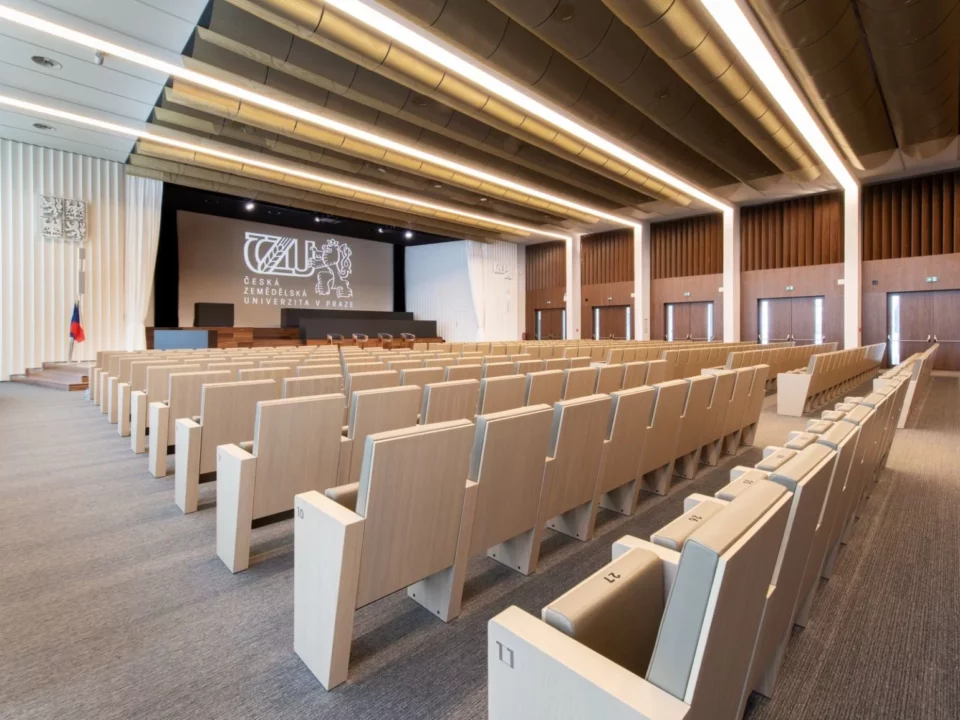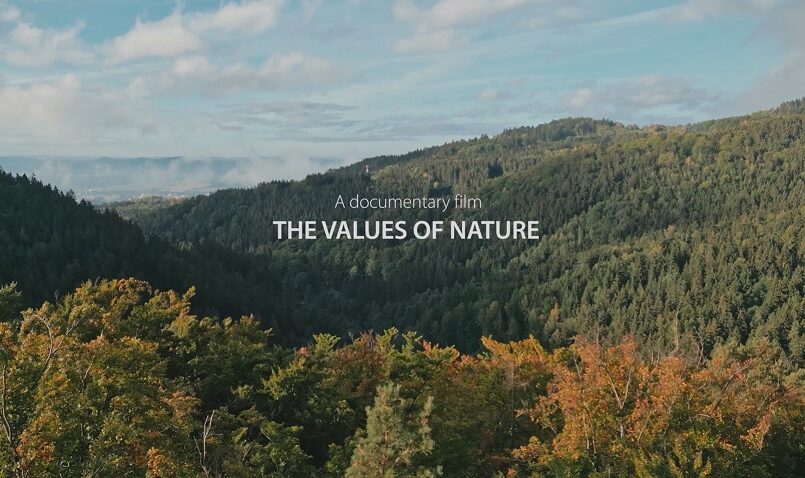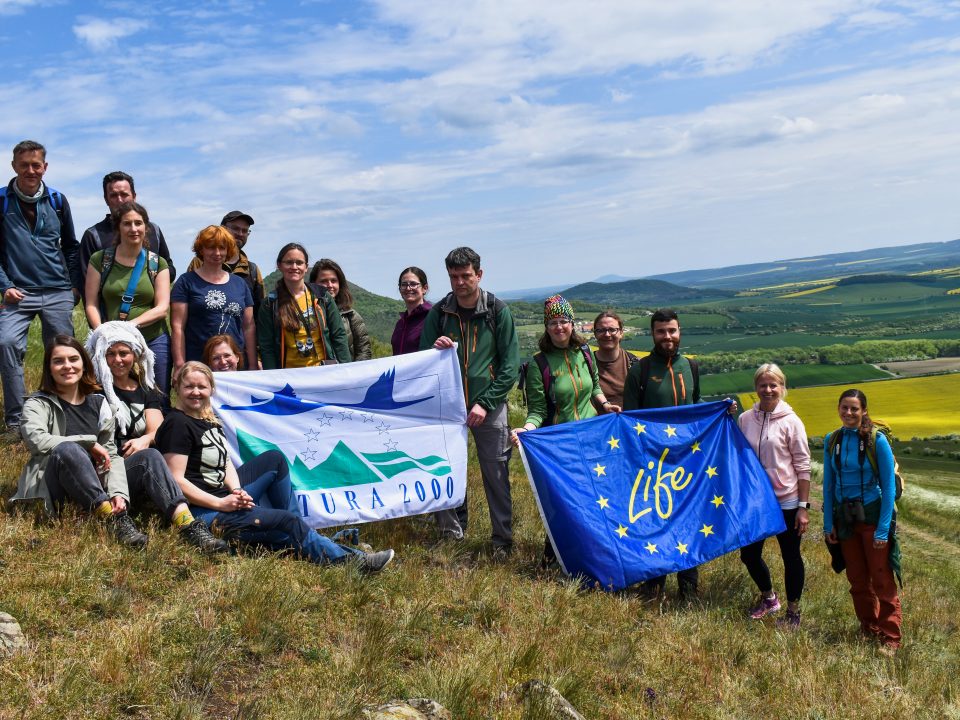We organized the first webinar of the One Nature project
The first educational event of the One Nature project called The Czech Story of the Natura 2000 Network took place on 12th and 13th November 2020. Due to the pandemic situation, the originally planned regular seminar turned into an online webinar. Education of nature conservation workers is an integral and essential activity of the One Nature project, and we are therefore glad that we managed to organize the first seminar while preserving the planned content online.

A picture from Petr Havel’s introductory presentation
Experts of the Nature Conservation Agency and the Ministry of the Environment presented to their colleagues and other participants interesting and not always publicly available details about the Natura 2000 network, especially about its origin, legal protection, appropriate management planning and, last but not least, about current issues and tasks associated with the creation and management of this unique network of areas protected at the European level.
Over the course of two days, a lot of information, details and even curiosities were said about how the European territorial system of nature conservation differs from the Czech tradition, what they have in common and how this was reconciled with practice. The introduction of the system of areas protected by the Natura 2000 network was a major new impulse for the Czech nature conservation in a number of topics: primarily in monitoring and data processing and the principles and objectives of management of the protected areas.
The cornerstones of the Natura 2000 network in the Czech Republic
In his introductory presentation, Petr Havel from the Ministry of the Environment (MoE) presented the general legal basis and obligations related to the implementation of the Natura 2000 network in the context of the European directives on birds and habitats. Data on the parameters of the Czech network, its specifics and conservation principles were provided and further elaborated in subsequent presentations.
In his presentation on the criteria for declaring Natura 2000 sites and on the data collected, Karel Chobot from the Nature Conservation Agency (NCA) revealed details about the process to collect data on individual species and to map habitats. He explained the reasons why they are actually collected, what they are used for, how they are obtained and stored in a unified database, and on what basis the system was designed.

A picture about the results of mapping natural habitats from a presentation by Karel Chobot
Eva Knižátková from the NCA guided the participants through the complexities of ensuring territorial nature conservation and landscape protection according to national law. She demonstrated the differences in the use of specially protected areas, contractual protection and the so-called basic protection of Sites of Community Importance. To obtain important information, she recommended using the Nature Conservancy Central Register (NCCR), where you can find out the exact areas and boundaries of individual protected areas, as well as the relevant nature conservation authorities that can decide about the area or you can get acquainted with planning documentation. In general, you can find out many other useful data.
Subsequently, Petr Havel from the Ministry of the Environment spoke, focusing on protecting Natura 2000 sites against inappropriate development, especially with regard to legal obligations in assessing the impacts of various plans and concepts on specific target features in the sites concerned. He illustrated how everything goes, what can follow in the case of issuing a positive or negative opinion, on two examples when the impacts of transport infrastructure in the Karlštejn-Koda Site of Community Importance and Komárov Special Protection Area were assessed.
A very extensive and demanding part of ensuring the fulfilment of the Natura 2000 network is the implementation of necessary and effective management in Sites of Community Importance and Special Protection Areas which must be based on expert data which are then used to accept planning documentation. At present, the Nature Conservancy Central Register contains an appropriate summary of recommended measures for more than 90% of Natura 2000 sites, which contains important information about the area and its state; above all, it is a guide on how to properly manage the target features of that area. Eva Knižátková spoke about the creation and purpose of these documents, which are an essential basis for planning and providing management.
Klára Čámská from the NCA followed up with a presentation on practical measures, especially from the point of view of financing and possible sources, and the administrative and methodological processes connected with them. She also mentioned all those who are more or less involved in the measures implemented in the landscape. These are mainly owners and tenants, managers, administrators, non-profit organizations, governing bodies, experts and, last but not least, the public and individuals, which should never be forgotten. A very important document (in addition to the previously mentioned summaries of recommended measures) for financing the Natura 2000 network in the Czech Republic is the so-called Priority Action Framework for the period 2021 to 2027, which was adopted and sent to the European Commission (EC) this year.

A picture from the presentation How we implement management in Natura 2000 sites and how we finance it, by Klára Čámská.
Current situation and plans for the future
Friday morning, the second day of the webinar, was dedicated to follow-up presentations on monitoring and mapping of individual species and habitats, achieving goals in meeting the directives on birds and habitats, the current status, future and declaring other Sites of Community Importance and Special Protection Areas.
Karel Chobot and Eva Knižátková introduced a number of tools and websites that are used to record the results of monitoring and mapping, and described how such status monitoring works in practice, what the results are used for and how they are worked with. For example, information on Natura 2000 sites across Europe can be found at https://natura2000.eea.europa.eu/.

Demonstration of possible use of the obtained data in the MapoMat application, from a presentation on current topics, the part presented by Karel Chobot
The data obtained thus serve mainly as a basis for the creation of Evaluation Reports (according to Article 17 of the Habitats Directive and Article 12 of the Birds Directive), which are sent to the EC every six years. The last report sent in 2019 includes information on the favourable, insufficient, unfavourable or unknown statuses of species of European importance and natural habitats in the Czech Republic and was, as every year, subsequently used to compile a summary report for all European Union Member States.
Petr Havel spoke about the ongoing evaluation of the implementation, other obligations and activities that have been ongoing recently and that the Czech Republic will have to put in practice when fulfilling both of the above-mentioned directives. He stated that the expansion of Svatá SCI and Prostřední vrch SCI is currently being prepared, and changes are planned to ensure the functionality of the Czech Natura 2000 network. He also introduced the formal EU procedures, especially the process called Infringement and EU Pilot management, which prove that The European Commission is closely monitoring the implementation of Natura 2000 network by individual Member States.
He also answered the question whether and for what reasons it is possible to exclude an already declared sites from the network (exceptionally it is, with the approval of the EC and after meeting specific criteria) or how the species and natural habitats outside the Natura network are protected (these are also monitored and important).
Subsequently, Karel Chobot took the floor again and together with Iva Hönigová they showed the participants how both European directives are fulfilled in practice and how the related efforts are manifested in the Czech nature (especially in terms of the statuses of the target features) and especially what the Ministry of the Environment and the NCA do and plan to make everything work. They also mentioned other projects that are directly related to the One Nature project, complement it or will be able to build on it, such as the projects Monitoring and mapping of selected plant and animal species and inventories of small specially protected areas in the Czech Republic and NCIS2 – Nature Conservation Information System 2 – a tool to support evaluation of the statuses of protected areas and protected species.

Presentation on current topics, Iva Hönigová explained an adaptive management cycle supported by a number of projects, incl. One Nature project
In conclusion
We will repeat the seminar on the Natura 2000 network in the coming years. We recommend that nature conservation staff interested in further education follow our website, especially the Education page. It is also possible to contact Anna Příkopová, anna.prikopova@nature.cz, who will register the interested party and then send them an invitation as soon as we prepare the next seminar.








